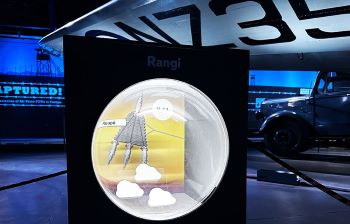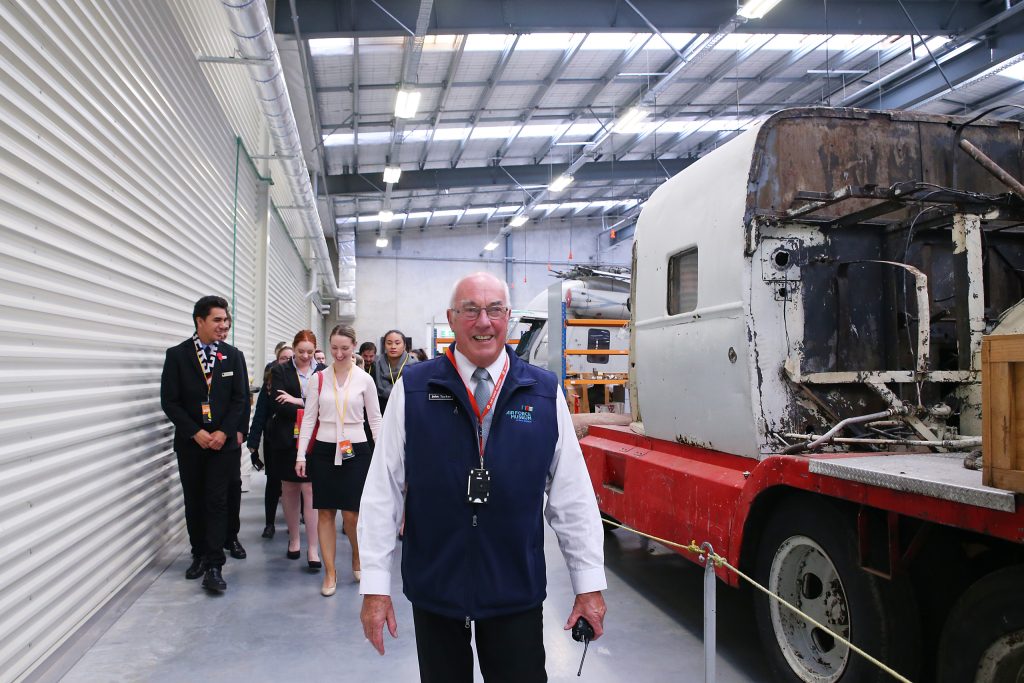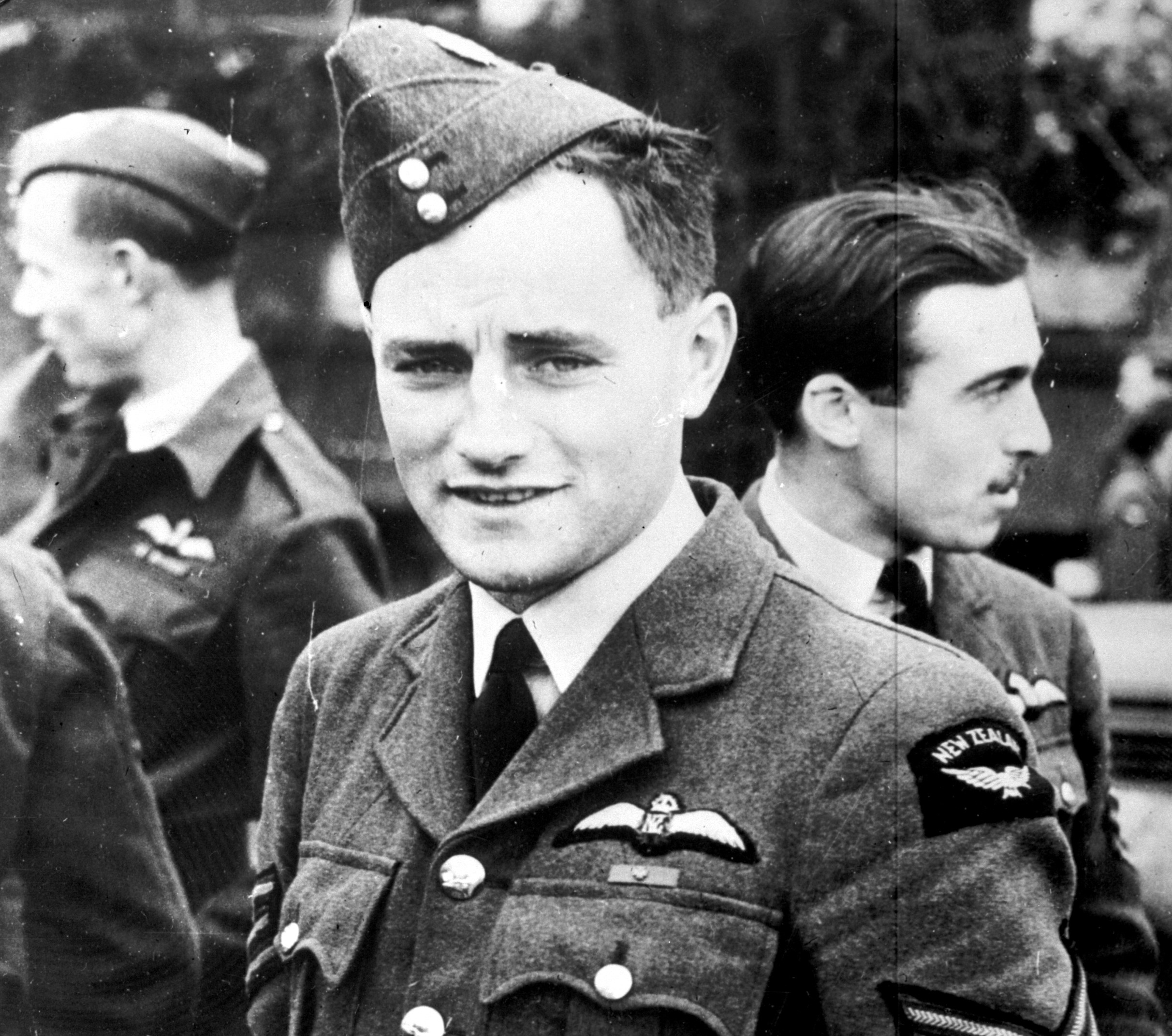When it comes to tales of sheer bravery and initiative in the face of danger, not many come close to the exploits that earned Sergeant James Allen Ward a Victoria Cross one night over Europe during World War Two.
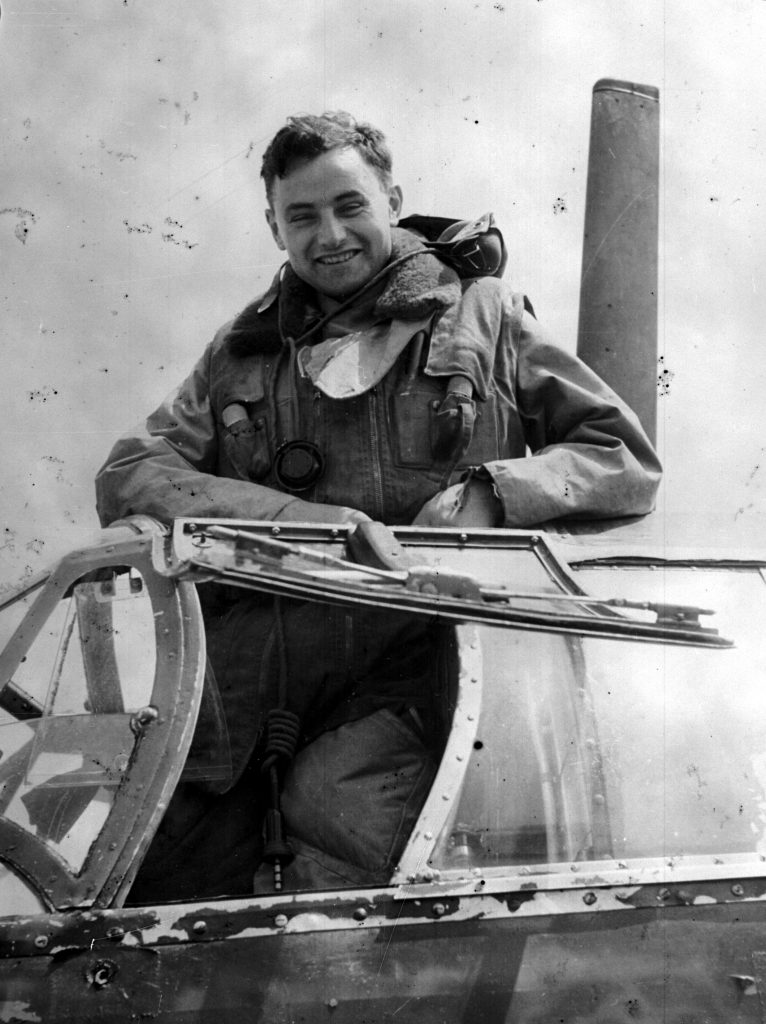
In 1941 Bomber Command was locked in a battle of attrition as it attempted to slow down Nazi war production with a strategic bombing campaign targeting the industrial heartland of Germany.
Equipped with Vickers Wellington bombers, No. 75 (New Zealand) Squadron RAF was in the thick of the nightly battle against ferocious flak and night fighters.
On the night of 7/8 July 1941, Whanganui-born Ward was the second pilot of a Wellington on a raid to Munster in Germany, Passing high over the Netherlands on the way back to England, the Wellington was attacked by a Messerschmitt 110 night fighter. The rear gunner of the Wellington managed to return fire but not before cannon fire from the Messerschmitt raked the Wellington’s starboard wing. Fire broke out from a ruptured fuel pipe near the starboard engine, and quickly spread to threaten almost the entire wing.
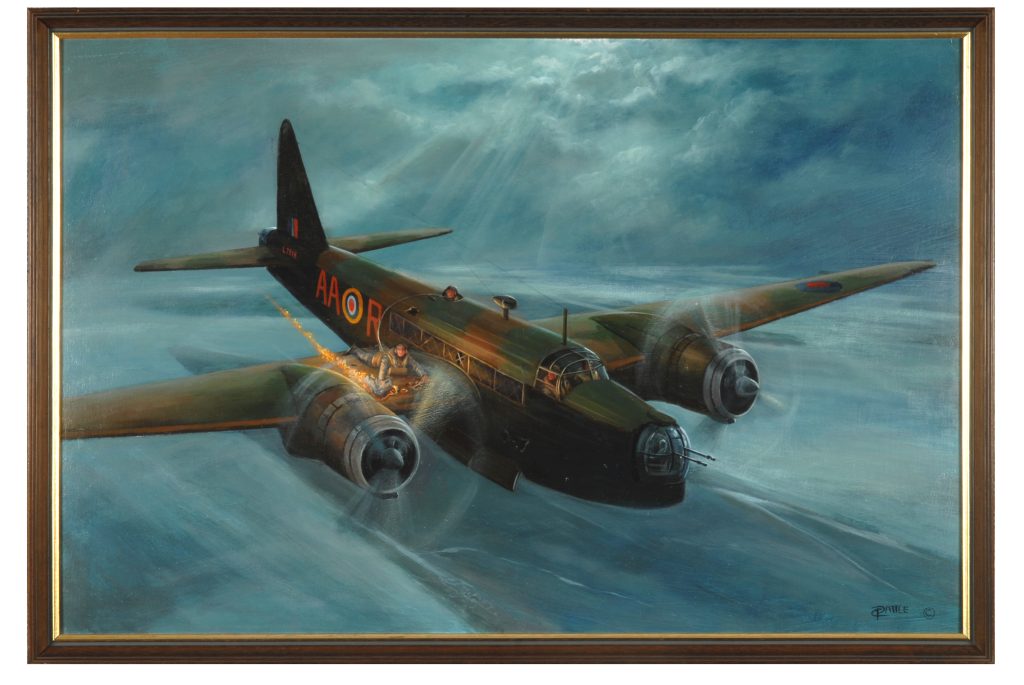
Wellingtons were built using an unusual design. A sturdy geodetic frame gave the aircraft its strength, but it was covered in fabric to save weight. This meant the crew was able to force holes through the fuselage fabric to begin fighting the fire, using fire extinguishers and then coffee from the flasks when the extinguishers ran out. After these first efforts failed, the crew was considering ditching the aircraft until Sergeant Ward stepped up with an audacious plan to try again.
The RNZAF pilot volunteered to head out onto the wing to smother fire using an engine cover which the crew had aboard as extra seat cushioning. The biggest consideration was how to cope with the extraordinary blast from the wind. Ward’s first proposal was to go out into the wing without his parachute to reduce the force of the wind on him, but his crewmates persuaded him this was not the best idea.
With a rope from the onboard rescue dinghy tied around his waist, Ward climbed out through the astrodome hatch on top of the Wellington and then put his parachute on. With the aircraft slowed as safely as possible to reduce the force of the wind, Ward climbed across the fuselage and onto the wing punching holes through the fabric for hand and footholds to allow him to cling on.
He was able to manoeuvre himself into position behind the engine and smother the fire in the wing fabric, and then pushed the engine cover into the hole to dampen the fire coming from a broken pipe. As soon as he removed his hand the cover blew away, but the job was mostly done and he was able to carefully make his way back into the Wellington with the help of the navigator.
The crew then returned safely, saved by the extraordinary bravery of the young New Zealander.
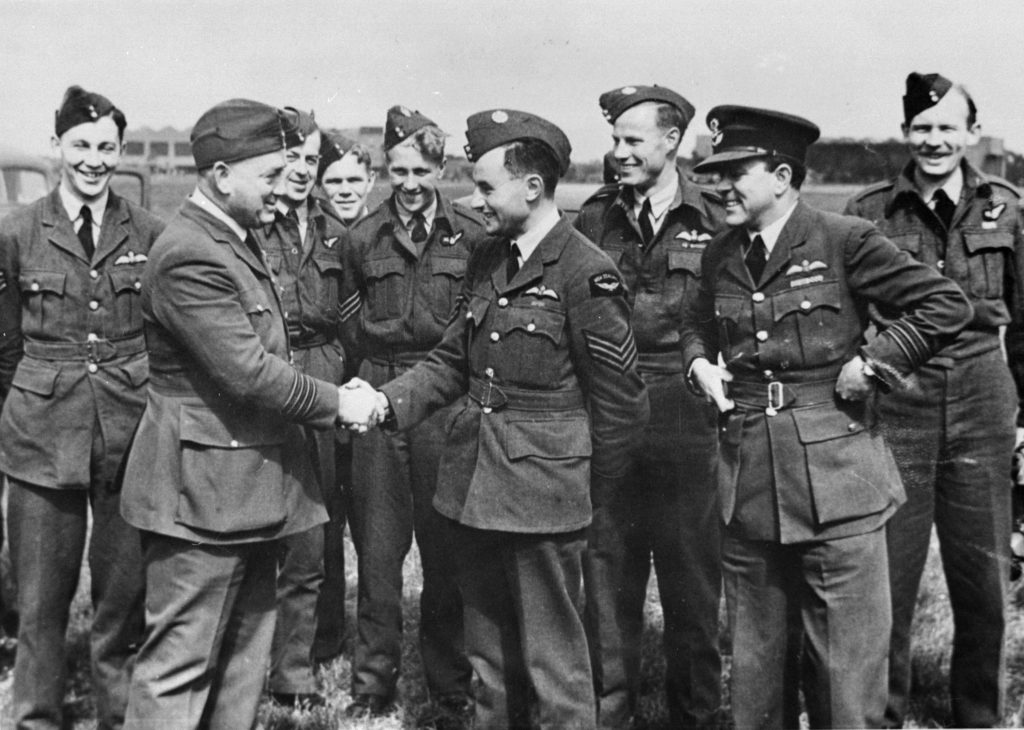
Ward was awarded the Victoria Cross for conspicuous bravery on 5 August 1941. In his citation it said: A safe landing was then made despite the damage sustained by the aircraft. The flight home had been made possible by the gallant action of Sergeant Ward in extinguishing the fire on the wing in circumstances of the greatest difficulty and at the risk of his life.
Ward, who trained as a school teacher before volunteering for pilot training in the RNZAF, celebrated his award with his crew mates when it was announced in August. Tragically he was killed on a raid over Hamburg on 15 September 1941. He was only 22 years old and was on his 11th operation.
James Allen Ward is buried at Hamburg Cemetery in Ohlsdorf, Germany. His Victoria Cross was presented to his parents in October 1942 at a ceremony in Wellington.
Ake ake kia kaha.
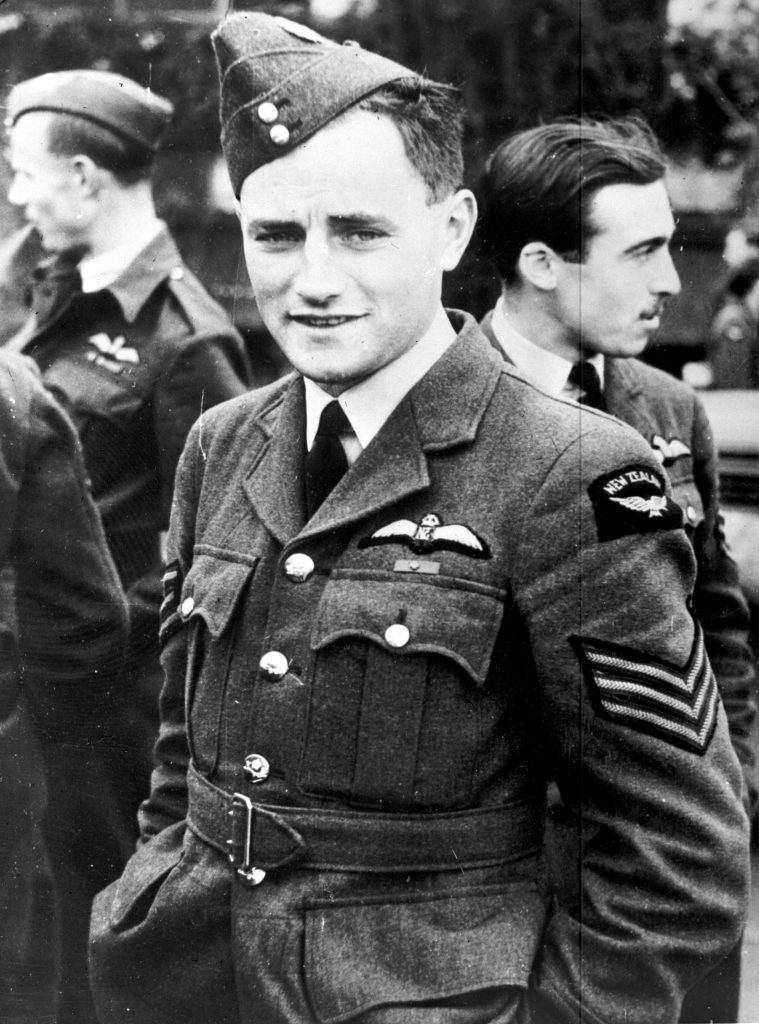
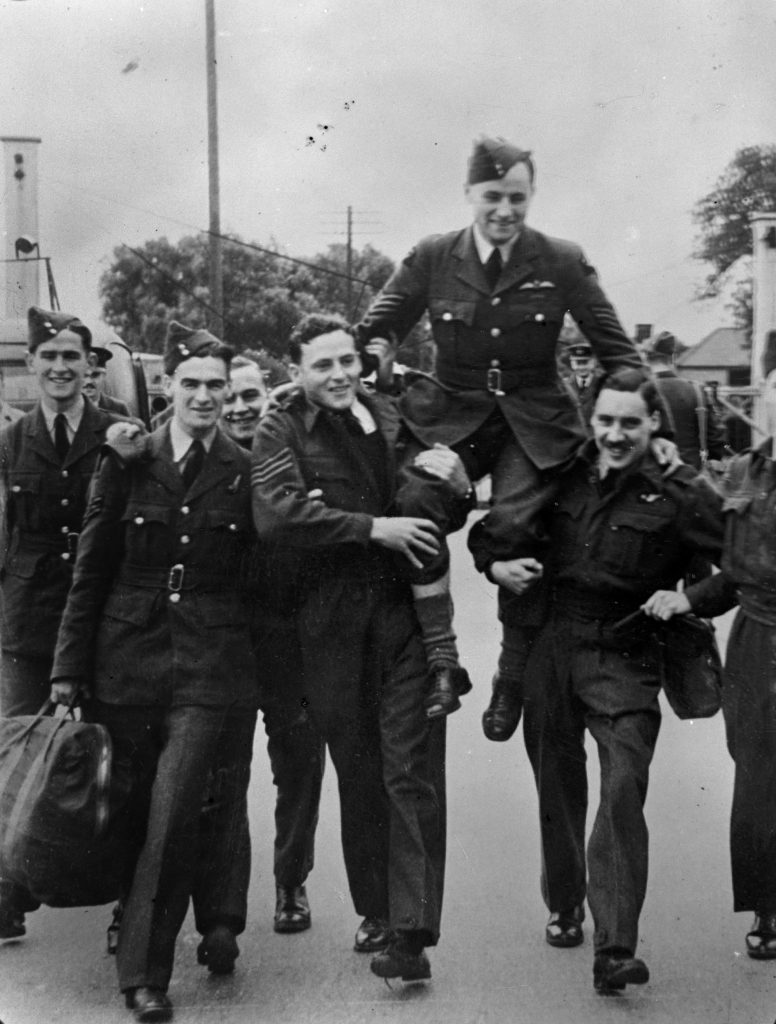
L-R: Sergeants Gwyn Martin DFM, Paddy Black, AG Windiate (head only), Ray Curlewis, James Ward and Monty Partridge.
Image: PR9198a
